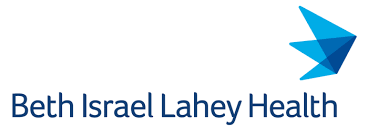- HOME PAGE
- WELCOME TO BMA
- HIPAA AND PRIVACY PRACTICES
- "MYCHART" health portal
- MOUNT AUBURN HOSPITAL
- After Hours Emergency Calls
- PCP, NP and PA Profiles
- Our Specialists and Specialty Services
- MT AUBURN DIABETES CENTER
- ABOUT OUR OFFICE
- Being Our Patient
- REFERRALS : online request form
- Patient LIBRARY
- Turning 65? MEDICARE explained
- Medicare Annual Wellness Visit
- FIVE WISHES AND HEALTHCARE PROXY
- Social Work Care Coordination
- Quality Care Measures
- MACIPA
- BULLETIN BOARD
- In Memoriam
- Job opportunities
Beth Israel Lahey Health
Primary Care
@
Belmont Medical Associates
725 Concord Avenue, Cambridge, MA 02138
617-864-8822
About us:
Established in 1977 by now retired Drs. Ranere and Shushan, we are currently a twelve-physician primary care group practice in Cambridge, MA. The physicians are all on the active staff at Mt. Auburn Hospital.
We have two Nurse Practitioners:
We have two Physician Assistants:
We also have an experienced nurse, Julie Bartlett, RN, who is available to all our medical assistants for advice.
There are many specialist services offered in our building. For a complete list of these services check the links on the left or click on here directly.
Established in 1977 by now retired Drs. Ranere and Shushan, we are currently a twelve-physician primary care group practice in Cambridge, MA. The physicians are all on the active staff at Mt. Auburn Hospital.
- Edward M. Kowaloff, MD (5th floor)
- Trevor H. Kaye, MD (6th floor)
- Deneen E. Pelletier, MD (6th floor)
- Olga V. Minkoff, MD (6th floor)
- Gabriel Szentpaly, MD (6th floor)
- Nancy Tran, MD (6th floor)
- Hiromichi Miyashita, MD (5th floor)
- Dinah Gorelik, MD (5th floor)
- Naris Ghazarians, MD (5th floor. She is leaving BMA at the end of July)
- Martha N. Martents, MD (5th floor)
- Jonathan S. Lorgunpai, MD (6th floor)
- Emily Marbas, MD (starting in September 2024)
We have two Nurse Practitioners:
- Anna Ost, NP-C (6th floor)
- Carrie MacLeod, FNP-C (6th floor)
We have two Physician Assistants:
- Kelsey Moulton, PA (6th floor)
- Elizabeth Thidemann, PA (6th floor)
We also have an experienced nurse, Julie Bartlett, RN, who is available to all our medical assistants for advice.
There are many specialist services offered in our building. For a complete list of these services check the links on the left or click on here directly.

